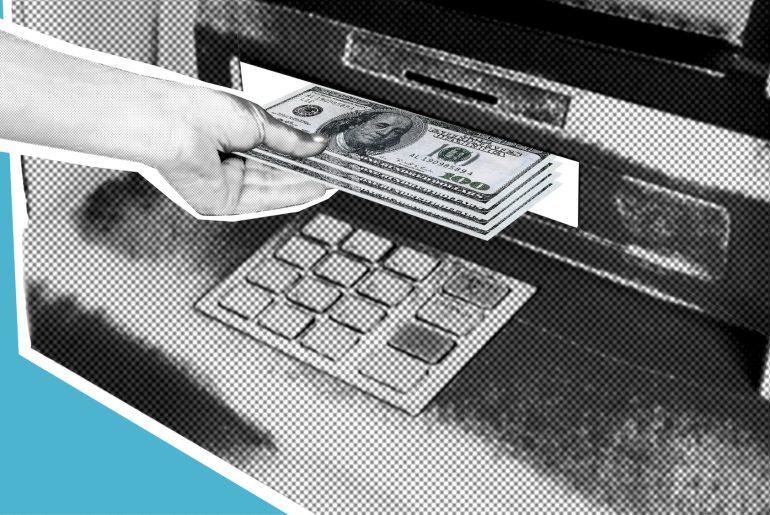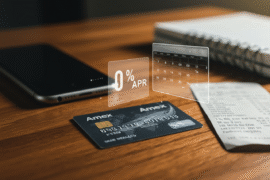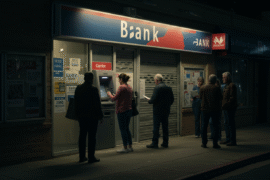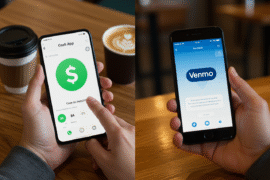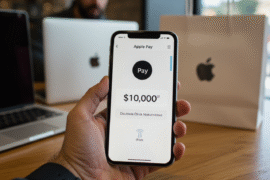This article may contain references to products or services from one or more of our advertisers or partners. We may receive compensation when you click on links to those products or services. Nonetheless, our opinions are our own.

Updated by Albert Fang
A checking account is a type of financial account at a financial institution in which withdrawals and deposits are regularly made. They can also be called transactional accounts, and typically hold very liquid resources, accessible using paper checks, electronic checks, or debit cards. Money from these accounts can also be withdrawn at automatic teller machines as well as other methods. They differ from savings accounts in that savings accounts typically do not have as many withdrawals or transfers, and instead are held as an accumulating resource for future financial needs.
It used to be that opening a checking account required references, proof of employment, and a variety of other documentation. However, these days, opening a checking account can take only minutes online. In fact, they are even offered by firms that do not have physical locations but instead conduct transactions entirely online. Many financial institutions offer several perks and benefits, especially for new account holders, to encourage individuals to make use of their financial services. But should you go with SoFi vs Bank of America or SoFi vs Wells Fargo? Let us examine three such services, their benefits and detriments, in an effort to determine which checking account is best for you.
Various Checking Accounts
Remember that checking accounts are quite liquid and will usually see many different types of transactions on a monthly basis. For this reason, you want to make sure that there are no hidden or additional fees, especially at ATM withdrawals, and be aware that most checking accounts do not accumulate interest given the frequent transactions they see. Some institutions also require account holders to carry a minimum balance in their accounts or incur penalty fees.
Bank of America
Bank of America is a traditional bank that has seen many decades of service and offers both branch locations and online and mobile app availability. This solution is best for those who would like a physical branch to visit to deposit checks or conduct other financial business and need ATM access at a variety of locations.
Pros
- Well designed mobile application
- Several online budgeting and financial goal-setting tools exist.
- Over 4000 branch locations
- Access to over 16,000 free ATMs
Cons
- Very low interest rates on both checking and savings accounts.
- Overdraft fees of $35 can be charged up to four times daily.
- It has low transfer limits for both daily and monthly limit withdrawals.
- The monthly fee of $12 is waived with a direct deposit of $250 or more daily. If the account maintains a balance of $1,500, the fee is also waived.
SoFi Checking and Savings
SoFi is an entirely online banking and financial institution, geared towards those who prefer managing their finances online or through a mobile application. There are no monthly or overdraft fees, and its checking account offers several benefits.
It is best for those who do not mind remote customer service and want high interest rates.
Pros
- Both checking and savings accounts have high interest rates on account balances.
- No overdraft fees or monthly maintenance fees
- Free access to over 55,000 ATMs through the Allpoint service.
- It offers a two-day direct deposit.
- Offers 2% APY interest for members with direct deposit linked
Cons
- No in-person customer service.
- No branch locations
- Cash deposits incur a $5 fee and must be conducted through third-party retailers such as Western Union.
Wells Fargo
Wells Fargo is a financial institution that has been in service for over 150 years. Because of its longevity, it not only has name brand recognition and reliability, but it also has a large network of branch locations as well as user-friendly mobile applications. It is best for those who still prefer access to branches and are not concerned with interest rates, but might instead be interested in opening several different accounts with a single financial institution.
Pros
- Although there are monthly fees on several different account types, they are easily waived under a variety of circumstances.
- Access to 5000 branch locations
- Access to over 12,000 free ATMs
Cons
- An overdraft fee of $35 can be charged up to three times daily.
- Savings accounts have low APY, checking accounts have none.
- A $10 monthly service fee is charged to accounts unless the account holder keeps a $500 minimum daily balance.
Summary
As we can see, there are many things to consider when opening a checking account, and different financial institutions, such as the ones reviewed here, offer various account requirements as well as perks and benefits. Some institutions offer a sign-up bonus for new account holders, 0% interest on balance transfers, as well as buyer protection against fraud when charges are incurred on the account during online shopping. In the past, many financial barriers to opening a checking account kept individuals with poor financial histories from considering it altogether, preferring instead to cash their paychecks at predatory check cashing establishments, and carrying around cash invited unhealthy spending habits. However, with services such as SoFi that allow for those with a weaker financial history to open a checking account and begin establishing a healthy financial outcome, more and more people are beginning to sign up for checking accounts and enjoy their benefits. Whether you go with SoFi vs Bank of America or SoFi vs Wells Fargo, be sure to research which service is the best fit for you.
FAQ
1. What is usually needed to open a checking account?
All three of these services, and many others, typically require proof of identity with a state-issued ID, a Social Security number, a minimum deposit, although SoFi does not require a minimum, and information about your employer.
2. How long does the process take to open an account online?
Once the financial institution has all of the documentation it needs, accounts are usually opened either immediately or within 24 hours.
3. Must you also have a savings account to open a checking account?
Traditional financial institutions and banks do typically require an account holder to also have a savings account when opening a checking account, so the two usually come bundled together. However, more recently, especially with online-only institutions, account holders can choose to open only a checking account if they choose. If you are unsure if you should go with SoFi vs Bank of America or SoFi vs Wells Fargo, be sure to research these aspects of each service first.

Reviewed and edited by Albert Fang.
See a typo or want to suggest an edit/revision to the content? Use the contact us form to provide feedback.
At FangWallet, we value editorial integrity and open collaboration in curating quality content for readers to enjoy. Much appreciated for the assist.
Did you like our article and find it insightful? We encourage sharing the article link with family and friends to benefit as well - better yet, sharing on social media. Thank you for the support! 🍉
Article Title: Bank of America vs SoFi Checking and Savings vs Wells Fargo: Which Checking Account to Open?
https://fangwallet.com/2022/08/24/bank-of-america-vs-sofi-checking-and-savings-vs-wells-fargo-which-checking-account-to-open/The FangWallet Promise
FangWallet is an editorially independent resource - founded on breaking down challenging financial concepts for anyone to understand since 2014. While we adhere to editorial integrity, note that this post may contain references to products from our partners.
The FangWallet promise is always to have your best interest in mind and be transparent and honest about the financial picture.
Become an Insider

Subscribe to get a free daily budget planner printable to help get your money on track!
Make passive money the right way. No spam.
Editorial Disclaimer: The editorial content on this page is not provided by any of the companies mentioned. The opinions expressed here are the author's alone.
The content of this website is for informational purposes only and does not represent investment advice, or an offer or solicitation to buy or sell any security, investment, or product. Investors are encouraged to do their own due diligence, and, if necessary, consult professional advising before making any investment decisions. Investing involves a high degree of risk, and financial losses may occur including the potential loss of principal.
Source Citation References:
+ Inspo
